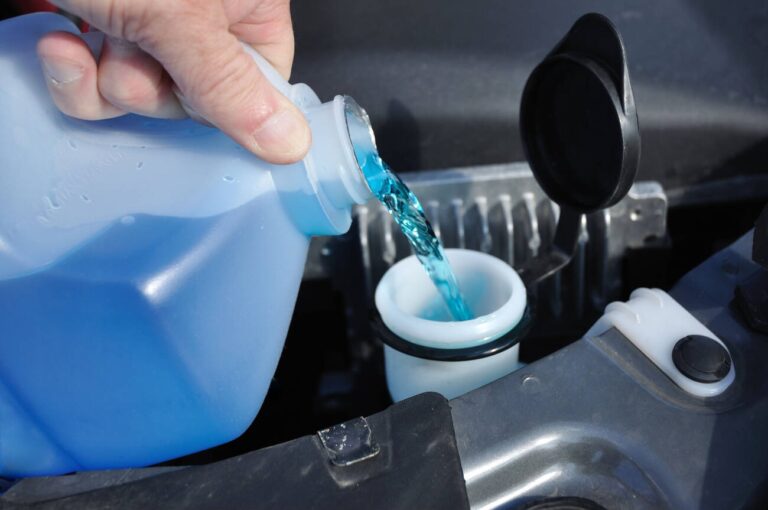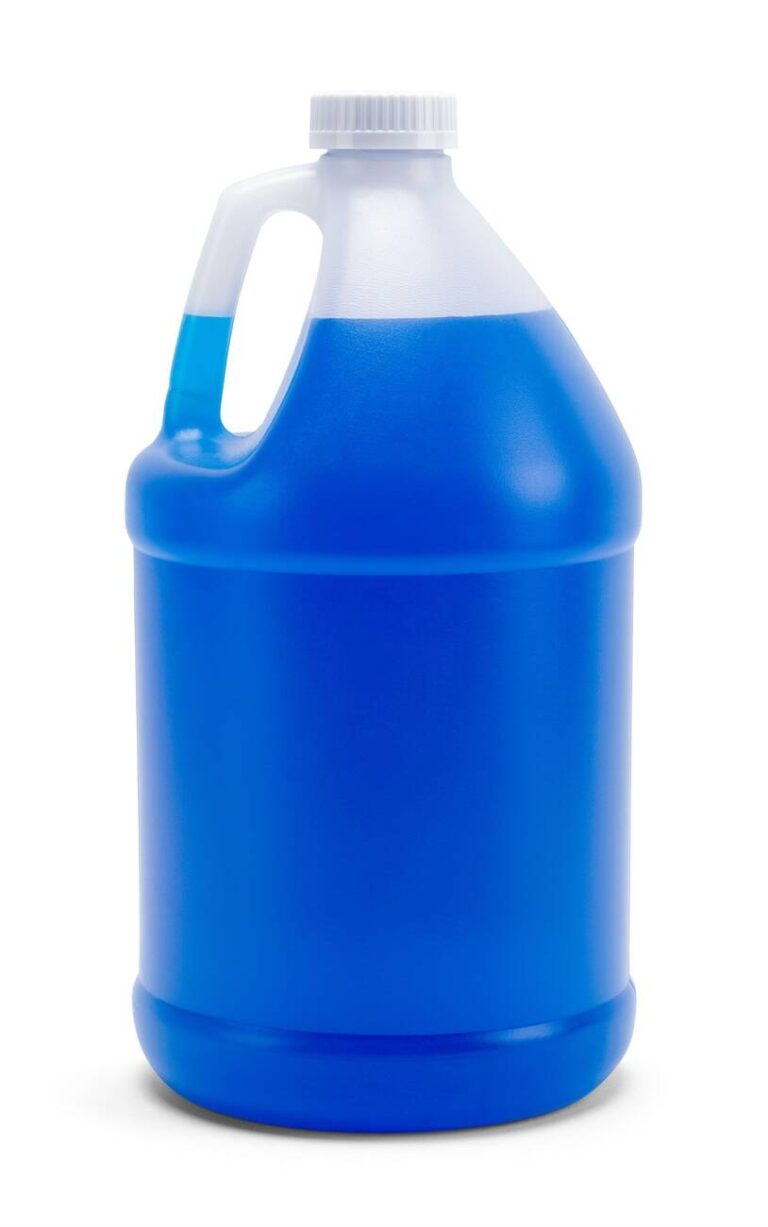Window washer fluid is a commonly used product in vehicles worldwide, but many people are unaware of its potential flammability risks. This seemingly harmless liquid can pose serious hazards if mishandled, making it crucial to understand its properties and safety precautions. In this article, we will explore whether window washer fluid is flammable and provide you with essential information to ensure safe usage.
As the use of window washer fluid increases, especially in colder climates where it helps to clear ice and snow, understanding its chemical composition becomes important. While it is designed to clean windshields effectively, improper storage or exposure to heat sources can lead to dangerous situations. This article aims to shed light on the flammability of window washer fluid and offer practical advice for safe handling.
Whether you're a mechanic, car enthusiast, or simply someone who wants to ensure your vehicle maintenance practices are safe, this guide will provide you with detailed insights into the properties of window washer fluid. By the end of this article, you'll have a better understanding of how to use and store this product safely.
Read also:Discover The Exciting World Of Amc High Point Everything You Need To Know
Table of Contents
- What is Window Washer Fluid?
- Chemical Composition of Window Washer Fluid
- Is Window Washer Fluid Flammable?
- Safe Storage Practices
- Risks Associated with Flammability
- Handling Tips for Safety
- Environmental Impact of Window Washer Fluid
- Alternatives to Traditional Washer Fluid
- Frequently Asked Questions
- Conclusion
What is Window Washer Fluid?
Window washer fluid is a specially formulated liquid designed to clean windshields and other glass surfaces on vehicles. It is typically composed of water, methanol, ethanol, or isopropanol, and various cleaning agents. This fluid is essential for maintaining clear visibility while driving, especially in adverse weather conditions such as rain, snow, and dust storms.
The primary function of window washer fluid is to remove dirt, grime, and debris from windshields, ensuring optimal visibility for drivers. However, its chemical composition can vary depending on the brand and intended use. Some formulations include additives to prevent freezing in colder climates, making them more versatile for year-round use.
Why is Window Washer Fluid Important?
Using the right washer fluid is crucial for vehicle safety. A clean windshield enhances visibility, reducing the risk of accidents caused by obscured views. Additionally, high-quality washer fluid can protect windshields from damage by breaking down tough residues like bug splatter and tree sap.
Chemical Composition of Window Washer Fluid
The chemical composition of window washer fluid plays a significant role in determining its flammability. Most commercial washer fluids contain a mixture of water and alcohol, such as methanol or ethanol, which serve as solvents and anti-freeze agents. These alcohols are volatile substances that can evaporate quickly when exposed to heat or open air.
Key Ingredients in Washer Fluid
- Water: Acts as the primary solvent and diluent in the mixture.
- Methanol: A highly effective cleaning agent with anti-freeze properties.
- Ethanol: Often used as an alternative to methanol due to its lower toxicity levels.
- Surfactants: Help reduce surface tension and improve cleaning efficiency.
Understanding the chemical makeup of window washer fluid is essential for assessing its potential risks and ensuring safe handling.
Is Window Washer Fluid Flammable?
Yes, window washer fluid is flammable, primarily due to the presence of alcohol-based compounds like methanol or ethanol. These substances have relatively low flash points, meaning they can ignite easily when exposed to heat, sparks, or open flames. However, the flammability risk varies depending on the concentration of alcohol in the fluid.
Read also:Pokimane The Rise Of A Streaming Sensation And Her Impact On The Gaming World
According to the National Fire Protection Association (NFPA), methanol has a flash point of approximately 52°F (11°C), while ethanol has a slightly higher flash point of around 53°F (12°C). This means that window washer fluid containing these alcohols can pose a fire hazard if stored or used improperly.
Factors Affecting Flammability
- Alcohol concentration: Higher alcohol content increases flammability.
- Temperature: Heat accelerates evaporation, increasing the risk of ignition.
- Storage conditions: Poor ventilation or proximity to ignition sources can exacerbate risks.
Safe Storage Practices
Proper storage is critical to minimize the flammability risks associated with window washer fluid. Always store the product in its original container, away from heat sources, direct sunlight, and open flames. Keep it in a cool, well-ventilated area, and ensure that the container is tightly sealed to prevent evaporation.
Additionally, it is advisable to store window washer fluid out of reach of children and pets. If you need to dispose of unused fluid, follow local regulations for hazardous waste disposal to protect the environment and human health.
Risks Associated with Flammability
The flammability of window washer fluid can lead to serious accidents if not handled properly. Exposure to heat, sparks, or open flames can cause the liquid to ignite, resulting in fires or explosions. These incidents can cause property damage, injuries, or even fatalities in extreme cases.
Moreover, inhaling the vapors from window washer fluid can be hazardous to human health. Prolonged exposure to methanol or ethanol fumes can cause respiratory irritation, headaches, and other adverse effects. Therefore, it is crucial to use the product in well-ventilated areas and avoid prolonged contact with its vapors.
How to Prevent Flammability Risks
- Keep the fluid away from heat sources and open flames.
- Store it in a cool, well-ventilated area.
- Ensure proper labeling and disposal of unused fluid.
- Use personal protective equipment (PPE) when handling large quantities.
Handling Tips for Safety
Safe handling of window washer fluid is essential to prevent accidents and protect your health. Always read and follow the manufacturer's instructions for use and storage. Wear gloves and protective eyewear when filling or refilling the fluid to avoid skin contact or splashes into the eyes.
In case of spills, clean them up immediately using absorbent materials and dispose of them according to local regulations. If you accidentally ingest or inhale the fluid, seek medical attention promptly. Keeping a Material Safety Data Sheet (MSDS) for the product on hand can also provide valuable information in emergency situations.
Environmental Impact of Window Washer Fluid
While window washer fluid is effective for cleaning windshields, its environmental impact cannot be ignored. The chemical components of the fluid, particularly methanol and ethanol, can harm aquatic life if they enter water systems. Additionally, improper disposal of used fluid can contaminate soil and groundwater, leading to long-term ecological damage.
To minimize the environmental impact, always dispose of window washer fluid through approved waste management channels. Consider using eco-friendly alternatives that are biodegradable and free from harmful chemicals. Many manufacturers now offer environmentally friendly options that perform just as well as traditional products.
Alternatives to Traditional Washer Fluid
For those concerned about the flammability and environmental impact of traditional window washer fluid, several alternatives are available. Water-based solutions with natural cleaning agents can provide effective cleaning without the risks associated with alcohol-based fluids. Some popular options include:
- Bio-based washer fluids derived from plant extracts.
- Non-toxic formulations designed for safe use around children and pets.
- DIY recipes using vinegar, water, and dish soap for eco-friendly cleaning.
These alternatives not only reduce flammability risks but also promote sustainability by minimizing chemical pollution.
Frequently Asked Questions
1. Can window washer fluid catch fire?
Yes, window washer fluid can catch fire if exposed to heat, sparks, or open flames. Its alcohol content makes it highly flammable, so proper storage and handling are essential.
2. Is methanol-based washer fluid more dangerous than ethanol-based?
Methanol-based washer fluid is generally more hazardous due to its lower flash point and higher toxicity levels. However, both types pose flammability risks and require careful handling.
3. How should I dispose of unused washer fluid?
Dispose of unused window washer fluid through approved hazardous waste management channels. Never pour it down drains or onto the ground to prevent environmental contamination.
Conclusion
In conclusion, window washer fluid is indeed flammable due to its alcohol-based composition. Understanding its properties and following safe handling practices is crucial to prevent accidents and protect both human health and the environment. By choosing eco-friendly alternatives and adhering to proper disposal methods, you can reduce the risks associated with this essential automotive product.
We encourage you to share this article with others to raise awareness about the flammability of window washer fluid. For more informative content on vehicle maintenance and safety, explore our other articles on the website. Your feedback and questions are always welcome in the comments section below!


